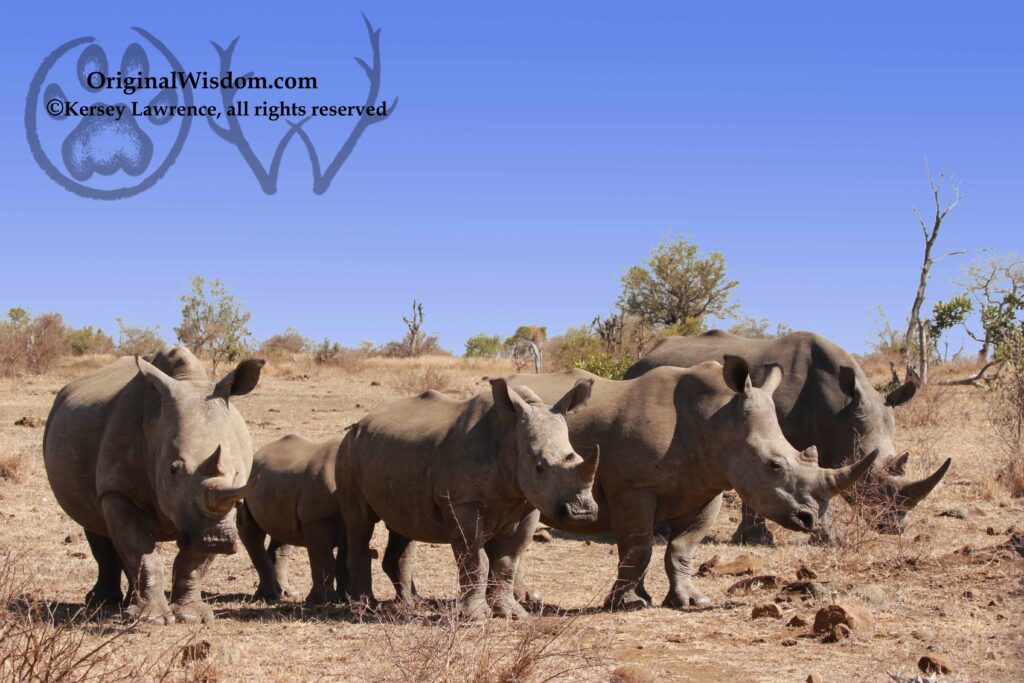The area where our camp, Ngala Training Camp, is, is in the Balule Private Nature Reserve, which is an area that is open to the vast spaces of the Kruger, with a free flow and animals to and from.
Last month, one of our students from Jamestown, Rhode Island, in the USA, sent us $20 (R330) as a donation for Rare Species Conservation when he enrolled in Course 1. I’ll keep his name private, just-in-case he doesn’t want any publicity, but, “you know who you are…”
We sent the donation to our local anti-poaching and conservation unit, in the Balule Private Nature Reserve. Below is a YouTube video of some of the work they do.
Rhino dehorning is highly controversial. The nay-sayers claim that it affects the behaviour of the animal (debatable) and that guest don’t like to photograph a rhino without a horn, so it has potential to decrease tourism dollars to the areas where rhinos still roam. The pro-sayers (if that’s even a word) claim that we need something, we have to do something, to stop the brutal slaughter of rhinos, or there won’t be ANY left for tourists to see, anyway. We tend to agree that we need to do something quickly, while the rest of the world debates about changing laws and law enforcement. While we argue, we are losing rhinos. The number was 1 rhino every 8 hours, over a year ago. We don’t have current statistics.
A rhino’s horn is made up of keratin, like your fingernails, so it can be cut off and will grow back. Most of the rhinos in the Balule have been dehorned, to reduce the pressure on them while we search for better solutions. But, as we said, we are in an open ecosystem, so rhinos don’t recognize any boundaries, and some reserves don’t believe in dehorning. If we see a rhino with a horn, we report it, so it can be dehorned.
With horned rhinos, poachers kill the animal, often in a very inhumane way, slicing into its face to remove every little bit of horn, which is sold to mostly Asian countries as “medicine” for curing cancer and various other ills, or as a status symbol for the wealthy. Rhino horn is more expensive per ounce than gold. The rhino is left to bleed to death in the bush, sometimes little babies stand next to their dead mothers for days before they are “rescued” or succumb to dehydration or predators. I’ll spare you the photos.
Two weeks ago, while we were at a friend’s wedding in Natal, we got a WhatsApp from our head warden. There had been an incursion into our area, and they’d caught the poacher “red-handed” with the rhino’s horn. The problem was, they hadn’t been able to find the rhino’s carcass, and they needed it to tie the DNA from the horn to the poached animal, in order to prosecute the poacher – they needed to prove a death had occurred. We immediately sent word to our team back at camp to be on the lookout, a horrible thought and no one wants to find or see that… but necessary. Within a couple of days time, another team had located it outside our area.
So, they can move forward with the prosecution.
Problem is, most cases get thrown out on technicalities, or the poachers receive the equivalent of a “slap on the wrist.” In some instances, this is because of corruption. In others, it’s because “poaching” is one class of crimes, and so a person poaching a guineafowl for food for his family is a poacher, just like someone who poaches rhinos. Surely the crimes are not equivalent? But changing laws is slow, too slow to save rhinos.
The bigger issue is that there is so much poverty here, and in the world, so that when a wealthy business-person offers a poor man a small amount of money to poach a rhino for its horn, it seems worth it to him to feed his starving family, or to afford himself a better quality of life. Or, worse yet, when a big crime syndicate holds his family hostage, a rhino’s life might pale in comparison.
There are so many facets to consider. Thanks to the men and women (and dogs) on the ground and in the skies trying to keep them safe.
In the meantime, we will keep soliciting donations for rhinos and Rare Species Conservation. Every penny helps. So, big, heartfelt THANKS to our anonymous donor last month, for Rare Species Conservation.

You can also donate directly to them with the details below.
Account Name: The Balule Community and Anti-Poaching Trust
Bank: ABSA
Branch: Hoedspruit
Branch Code (Universal): 63 20 05
Account Number: 40 9507 8765
Account Type: Current Account
Please just put IAN somewhere in the reference when making a donation. The treasurer will issue you
with a s18 tax certificate on receipt of the donation.
Ian Nowak, General Manager / Head Warden, Balule Nature Reserve
SA phone and WhatsApp +27 038 384 5190
E-mail gm@balulenr.co.za
Website http://balulenr.co.za/
Long live the chubby unicorn!